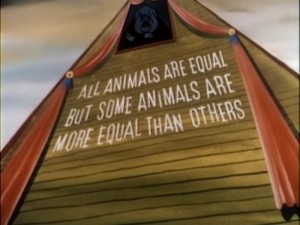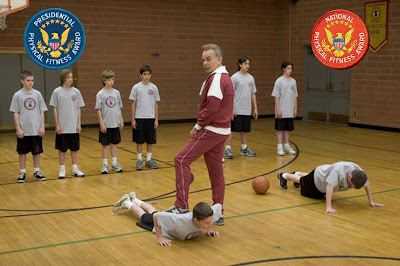Animal Farm Evidence: Some studies are not more equal than others.
 Something interesting happened today. A social media post went out about a study showing an association between strength training in individuals older than 65 years of age and all-cause mortality.
Something interesting happened today. A social media post went out about a study showing an association between strength training in individuals older than 65 years of age and all-cause mortality.
This, of course, was re-posted and praised in the echoes that followed because nothing feels quite so good as being “right” about your choices. Read More...
Why Asians are thinner: On Cultural Reduction and Health (Contains offensive language)
 Recently, a very prominent website published an article on why Asians tend to be thinner than what I can only presume to be Caucasians (as the writer is Caucasian). It’s not the first article on this topic and it won’t be the last (there is, after all, an entire field of study on comparing cultural behaviours and “health”. Whether this is a worthwhile field or not, I have yet to decide), but the treatment of the material was so completely out-to-lunch racist, that I could not fight posting about it.
Recently, a very prominent website published an article on why Asians tend to be thinner than what I can only presume to be Caucasians (as the writer is Caucasian). It’s not the first article on this topic and it won’t be the last (there is, after all, an entire field of study on comparing cultural behaviours and “health”. Whether this is a worthwhile field or not, I have yet to decide), but the treatment of the material was so completely out-to-lunch racist, that I could not fight posting about it.
The colonial narrative is healthy and strong, even in the fitness world. Other cultures become exoticized and romanticized as though they are not really part of the world of the writer. It’s both disappointing and amusing to read until you realize that the entire premise of such stories is to separate, perpetuating a ‘them vs us’ mentality, particularly when based on a thoroughly inadequate experience of what it means to be of another culture (This petition was created in response to a newspaper article on Filipino cuisine as experienced by a naive Caucasian traveller). It results in the inappropriate homogenization of many cultures under a single, reduced label. This essentially invalidates the richness of what it means to experience any one of those cultures expressed in a myriad of combinations. Read More...
Post hoc ergo propter hoc (Or, does shit happen because Zeus is angry?)

I’m sitting at Equinox on 44th Street (Thanks, Equinox for letting me work out at another gym other than my own in this mess!) writing this because I have to wait another hour for everything I own to be recharged (thanks, Sandy). However, it’s amazing what pops into one’s head in silence, darkness and no Internetz. Unfortunately, it also means no actual study review, since I can’t seem to reliably get online (that, and I’m feeling a bit lazy, so someone send me a link, eh?)
In case, you haven’t figured it out, my life in on hold while they try to restore power to my area of Manhattan. One of the hospitals I work at has actually evacuated all the patients, and the other main one I work at is running on emergency power only (no labs, no computers, minimal lights). Read More...
Bias doesn’t always work against you (or why gym class might not be all it’s cracked up to be)

This blog entry’s study comes from my friend Brad Pilon, who said, and-I-quote, “I wanna get you back to dissecting papers on your blog,” which jolted me into realizing I haven’t in a long time.
One idea that Brad and I have been talking about (apart from trying to stick to manipulating factors that make LARGE contributions to progress) has been the notion that diet and exercise, though both important for “health” and “fitness”, may have little contributions towards their counterpart body components. Diet seems to have the greatest impact on body fat, while exercise (and more specifically, resistance exercise) seems to have a greater impact on lean body mass. While one CAN use exercise to assist in losing body fat, I think there is probably some truth in the saying, “You can’t out-train a bad diet,” and similarly, I would argue that at most levels, you probably can’t eat yourself more muscles, otherwise, there would an epidemic of Ah-nolds in America, not obese people. Read More...
Screwed if you do, screwed if you don’t: People don’t want to read what they don’t want to hear

This WOULD be a catastrophe. This week, I was asked to write a commentary for Fitocracy on what has now become known as the “Red Meat Will Kill You” Study. The fallout in the blogosphere has been pretty dramatic (and by dramatic, I mean drama-filled and theatrical). There have been a few well-written, thoughtful commentaries, but by far, the bulk of criticism has been the general “correlation, not causation” crowd. While I think this is, by and large, a HYUGE step forward in general research literacy, it also makes me wonder if it’s just another sign of polarized, blinded thinking.
There is a fundamental difficulty with measuring long-term outcomes that are distantly removed from single-point events, and continuous repeated exposures. The three mainstream ways to get at the question of, “Does X make you live longer/shorter?” are: Read More...